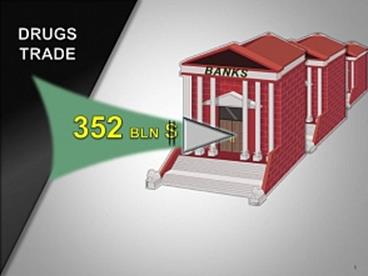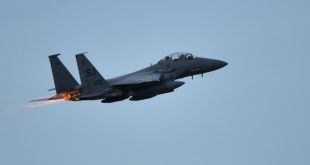
At first glance, Nigeria’s decision last month to move to a floating exchange rate and the announcement of the merger of two banks in the United Arab Emirates (UAE) last week have little in common.
Nigeria is a country with a population of almost 180 million and with a GDP of less than $3 million at market exchange rates last year. The population of the UAE in less than 18 times and 13 times richer. However, both countries are members of Organization of countries-exporters of oil (OPEC) and both learn to live with cheap oil.
The merger of National Bank of Abu Dhabi (NBAD) and First Gulf Bank (FGB) will be the largest in the UAE financial institution, with total assets amounting to 640 billion dirham ($175 billion). Force FGB in Bank services for physical persons, working with credit cards and mortgages. NBAD has positioned itself as “the banker of the government”, which is a powerful investment unit.
The merger of the banks will help Abu Dhabi to extend their influence outside of the country, said an analyst at investment Bank EFG-Hermes, Simon kitchen.
But we must also recognize that the UAE today is much less room for financial manoeuvre. Since oil prices began to decline in 2014, began to decrease in oil revenues, and therefore a dollar received. Due to the fact that the dirham pegged to the dollar, lower the inflow of hard currency has led to slower growth of the money supply. In fact, it was zero in the last two years, says the British magazine the Economist.
A similar slowdown is observed around the Persian Gulf. At least 46 commercial banks (one every 208 thousand people) are fighting for the stagnant pool of deposits in the UAE. Some of the smaller financial institutions are being traded below their book value. According to James Burdette, financial Director at NBAD, further consolidation of vital and economically viable”.
While the UAE has the fiscal and the monetary capabilities to keep the binding, but these efforts have led to the growth of the budget deficit to 3.7% of GDP in 2015, while a year earlier there was a surplus.
For less wealthy countries much cheaper oil means even less space to maneuver. The decline in the exchange rate is one of the possible ways of increasing the money supply in the country despite the shortage of dollars. It did so Nigeria June 20 when he allowed Naira depreciated by 30% in one day.
Free course replaced the introduced in March 2015 peg to the dollar, which deprived the economy of money and led to the emergence of a black market in foreign currency. Within weeks after the transition to the free course of Bank shares soared by almost 10%.
While the UAE has too many banks, in Nigeria, they are sorely lacking. Today in this African country, operates a total of 21 banks (one of 8.5 million people), while in 2004 they were 89. The devaluation of the Naira’s created for these entities difficult.
According to Fitch Ratings 45% of loans to Nigerian banks denominated in dollars or other foreign currencies while their capital in Naira. When local currency depreciated, she pulled down and their cost of capital relative to borrowings, bringing them to the border of the regulatory minimum. If the Naira weakens further, it may hurt their creditworthiness.
In other countries-oil exporters, the depreciation of the local currency drove the banks into the opposite trap: the increased value of their liabilities relative to their assets. In Azerbaijan and Kazakhstan, for example, deposits, rather than loans, often dollar denominated, which makes banks extremely vulnerable to the problem of currency mismatches.







